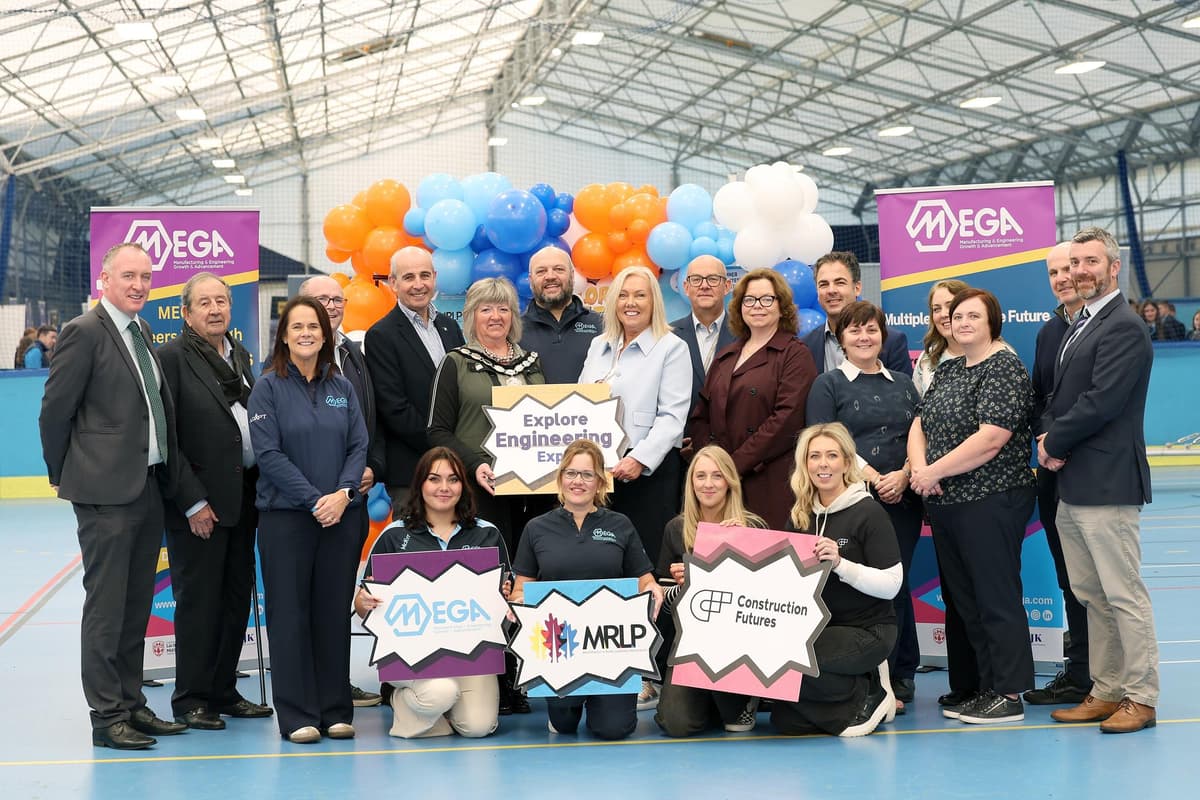Copyright forbes

Three big national approaches to AI are currently being pursued – US, China, EU. Is there a fourth option? We are witnessing a paradox. While artificial intelligence systems increasingly reshape every corner of human existence — from how we work and learn to how we think, feel and interact — most of the world remains spectators in a game whose rules are being written elsewhere. The United States champions a business-first AI path, prioritizing market dominance and shareholder value. China advances a state-controlled model, emphasizing national strategic interests. The European Union focuses on regulation, attempting to fence in AI's risks through legislative frameworks. But there's a fourth path emerging — one that refuses to choose between innovation and inspiration, between progress and planet. This path, rooted in prosocial AI principles, offers nations in the Global South a genuine opportunity to leapfrog into a future where technology serves as a catalyst for positive social change rather than a force that amplifies existing inequalities. The Hybrid Tipping Zone We are navigating a hybrid tipping zone — a convergence point where four critical forces collide simultaneously. At the individual level (micro), we're experiencing agency decay: our capacity to make autonomous decisions erodes as algorithms increasingly nudge, predict and decide for us. Prolonged interaction with artificial recommendation systems reshapes our neural pathways, making us more dependent on algorithmic cues for even basic choices. At the community level (meso), AI mainstreaming transforms social bonds and cultural practices. Algorithmic mediation of social interactions — through platforms that curate who we see, what we discuss and how we connect — fundamentally alters the texture of human relationships. Our interpersonal connections become increasingly dispensable. As AI companionship grows common, people spend hours conversing with chatbots daily, discussing everything from love lives to business challenges to emotional distress — including topics that genuinely warrant the human touch. MORE FOR YOU The macro level witnesses an escalating race for AI supremacy and artificial general intelligence, with nations and corporations investing hundreds of billions in a winner-takes-all contest. The quest for AGI has become technology's holy grail, yet definitions of what it entails diverge wildly. Meanwhile, experts agree it constitutes a significant risk that current safeguards cannot control. At the global (meta) level, the climate conundrum intensifies, jeopardizing planetary ecosystems and hence our individual and collective livelihoods. From Mexico via Ireland to Malaysia, small cities and villages suffer electricity blackouts and water shortages as gigantic data centers feed AI systems' exploding energy demands. These four dimensions don't exist in isolation. They form a continuum of constant change, each influencing the others. Agency decay at the individual level shapes divided societies at the macro level. Climate deterioration affects community resilience to external shocks, which in turn influences individual wellbeing. This multidimensional dynamic forms the foundation of human society. It reflects, at the collective level, the multidimensional nature of natural intelligence as an organically evolving kaleidoscope of aspirations, emotions, thoughts and sensations — fundamentally different from its artificial counterparts. Which is precisely why we need a radically different approach to building AI systems. The Four Ts Of Prosocial AI This is why pursuing a fourth path matters. Prosocial AI isn't just another buzzword — it's a deliberate framework for building systems that are tailored, trained, tested and targeted to serve human flourishing at every level. Tailored means recognizing that context matters. An AI system designed for healthcare in São Paulo needs different guardrails, training data, and interfaces than one designed for Casablanca. Tailoring requires curiosity and a deep understanding of local languages, cultural norms, economic realities and social structures. Trained means being intentional about what data we use and what values we encode. It matters to remember that data is a proxy of reality. It is imperfect. Hence models trained on diverse, representative datasets perform better across populations — and they're less likely to perpetuate harmful biases or exclude certain people or communities. Tested means rigorous evaluation across four dimensions: individual impact (does this respect human agency?), community impact (does this strengthen or weaken social bonds?), societal impact (does this reduce or amplify inequality?), and planetary impact (what are the environmental costs?). Targeted means being clear about purpose. Prosocial AI deliberately aims to be pro-people (enhancing human capability without replacing human judgment), pro-planet (minimizing environmental footprint while maximizing positive impact), pro-profit (creating sustainable economic models that don't require exploitation), and pro-potential (helping every individual access opportunities to fulfill their inherent capabilities). Double Literacy: The Foundation Of Hybrid Intelligence You and I are part of the last analogue generation. We remember life before smartphones, before social media, before AI assistants mediated our daily decisions. This positions us uniquely — we carry both the memory of purely natural intelligence and the experience of increasingly hybrid existence. This represents an opportunity and an obligation. The opportunity is to shape the algorithmic architecture of our shared future before it ossifies into patterns serving narrow interests. The obligation is to ensure everyone, not just technical elites, develops double literacy. Human literacy means understanding ourselves holistically: recognizing how our aspirations (soul), emotions (heart), thoughts (mind), and sensations (body) interact and influence each other. It means understanding that we exist simultaneously as individuals, community members, citizens and planetary inhabitants — and that these dimensions constantly shape each other. Algorithmic literacy means understanding candidly both the opportunities and risks AI presents. It's not about everyone becoming a programmer — it's about understanding how algorithms influence our thinking patterns, emotional responses, decision-making processes, and social interactions. Even basic algorithmic literacy significantly improves people's ability to use AI tools effectively while maintaining their autonomy. Without double literacy, we're navigating a hybrid world with an analogue map. Our education systems — from kindergarten to retirement — need fundamental revamping. Children should learn about their own emotional regulation alongside understanding how social media algorithms exploit attention. Adults need continuous opportunities to develop both self-awareness and technological competence. Hybrid citizenship requires acute awareness of the interplay between AI and natural intelligence. Morocco’s Moment: Another AI Path Countries in the Global South stand at a fascinating inflection point. For example Morocco’s New Development Model explicitly emphasizes human capital development, sustainable growth, and social inclusion — creating fertile ground for ProSocial AI approaches. Rather than simply importing AI systems designed elsewhere, the country has the opportunity to pioneer context-specific solutions that serve its own development priorities while offering models for other South-South nations. A conference on AI regulation organized this week by MoroccoAI and Meta in Rabat exemplifies the kind of gathering essential for navigating our hybrid future Bringing together private sector innovators, public sector policymakers, academic researchers and civil society thinkers creates the multidimensional dialogue necessary for prosocial AI development. When a government minister, an AI researcher, a community organizer and a business leader sit in the same room discussing AI's implications, the conversation naturally touches on the social implications of technology. Moving forward this type of forum could be useful to systematically examine AI - not merely as a tool for efficiency and effectiveness but as a complex dynamic with ripple effects at the micro, meso, macro and meta dimensions. Transdisciplinary Cocreation Consider practical applications if this practice scales. Morocco could develop AI systems tailored for its agricultural sector that preserve traditional farming knowledge while augmenting it with climate data and market insights. Healthcare AI could be trained on diverse Moroccan populations, tested for cultural appropriateness, and targeted specifically to improve maternal health outcomes in rural areas. Educational AI could respect Morocco's multilingual reality — Arabic, Amazigh, French — rather than defaulting to English-centric models. The economic opportunity is substantial. The African Development Bank's research suggests that context-appropriate AI could add $1.5 trillion to Africa's GDP by 2030. But beyond economics lies the question of dignity and self-determination. When nations develop AI capabilities rooted in their own contexts and values, they aren't just building technology — they're asserting their right to shape their own futures. Building Hybrid Awareness: A Practical Takeaway Moving forward requires action at every level. The 4A Framework offers a practical roadmap, not just for AI design but for each of us: Awareness - Assess and honor your aspirations: At the micro level, each of us must regularly reconnect with our deeper quest for purpose and the values underpinning it. This compass ensures our AI tools serve these aspirations rather than replacing them. Ask yourself weekly: are my AI interactions bringing me closer to the person I want to be? Appreciation - Understand your emotions: At the meso level, each of us and the communities we belong to need spaces — both physical and digital — where people can process how technology affects their emotional lives and relationships. Seek or create opportunities for regular community dialogues about technology's impact on social bonds. Acknowledgment - Recognize the range of your thoughts: At the macro level, starting with one person — which can be you — societies must invest in double literacy education to help citizens think critically about both their own cognitive patterns and algorithmic influence. If you're a student, teacher, parent or business leader, demand that schools teach human and algorithmic literacy from primary education onward. Get started yourself in the meantime. Accountability - Stay connected to planetary reality: At the meta level, we must remain viscerally connected to our planetary reality. It's easy to lose touch with nature amid the digital jungle invading every moment. But there's an alternative — which depends on our choice to reduce the space technology occupies in our lives. If you're a designer or coder, get curious about building AI systems that make their environmental costs visible or design interventions that strengthen our embodied connection to the natural world. Across all levels, navigate with compassion for yourself and others. We're all on a steep learning curve when it comes to AI interaction. We are entering the next stage of artificial evolution — not fully prepared, but not entirely powerless either. The question isn't whether AI will reshape our world — it's whether we'll shape AI to serve human flourishing and planetary health, or delegate even that decision to our chatbots. Pursuing the fourth path of prosocial AI offers countries, especially those in the Global South, an alternative to simply accepting AI paradigms designed elsewhere. The hybrid future is inevitable. But who decides what it looks like? That answer depends on whether we — the last analogue generation — fulfill our obligation to build the double literacy that makes genuine choice possible. Morocco's gathering in Rabat offers a glimpse of what's possible when diverse voices shape technology's trajectory together. The question is whether other nations will follow this fourth path, or whether the world will remain divided between business dominance, state control, and regulatory reaction. The choice, for now, remains ours. But the window is closing. Editorial StandardsReprints & Permissions



